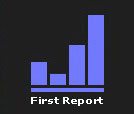First Report Customer Care
All time: 4.6
Latest / Last 30 Days: 5.0
528 Reviews
All time: 4.6
Latest / Last 30 Days: 5.0
528 Reviews
Check if a Business, Company or Person has a CCJ
Firstly, what exactly is a CCJ and why is it important to check for them?
A CCJ stands for a County Court Judgement and if a business has one it means a court has ordered that business, company or individual working as a sole trader or in a partnership, to repay a specific debt. If the debt is not paid within one month, the CCJ will remain on the business’ record for six years. If, however, the debt is repaid within that time frame, the CCJ will be wiped clean from the file.
A CCJ is basically the equivalent of a big black ‘X’ against a company’s name, and if you’re thinking of having dealings with a company that has a CCJ on its file, it’s wise to think twice. Why? A CCJ clearly marks out a company that has failed to keep its end of the bargain – it has failed to keep on top of its accounts, and as such, can be seen as a credit risk. If these issues aren’t dealt with accordingly, it could continue to fail to keep its accounts in good health and have persistent cash flow problems. If you’re not in the habit – and don’t ever want to be – of getting into the world of debt recovery, you may wish to steer clear of a business with a history of CCJs.
If, however, you’re considering going into business with a company or individual that has a CCJ you’ll need to consider the risks as to how likely any future problems may be. To help you make a judgement, consider these points –
• How many CCJs does the business have?
• How quick have the CCJ debts been paid off?
• How long ago was the CCJ issued?
For more about the nuts and bolts of CCJs we also have a Guide to CCJs.
How to run a check for a CCJ
Checking to see if a business or individual has a CCJ is a bit like performing your own credit check. There are two ways of doing it –
1. Use a public record source
2. Use a credit agency
Public Record Source
Records of CCJs can be publicly accessed at the Trust Online website. You’ll pay £4 for a search of England and Wales, £8 for two searches or £10 for three or more searches. These multiple searches are a good idea if the business you want to run a check on operates in another country - Northern Ireland for instance.
The search is completed online and you’ll receive the results of your search by email pretty much straight away. In order to carry out your search, you’ll need to have the name and address of the business or individual you’re checking on. If the business is a limited company, however, you just need to have their full name.
The report you’ll receive will show you information regarding the business’ CCJs, court orders, fines and high court judgements. It’s compiled using data from the UK Government’s official register so you can be sure the information is correct and up to date. Once you’ve viewed the report, you’ll be able to make a more valid judgement as to whether striking up a partnership with the business or person in question is a good idea.
Credit Agency
It is also possible to carry out a check to see if a business has any CCJs by using a credit agency. However, in the age of the internet, it can be very easy to type ‘company credit check’ into a search engine and be faced with page after page of websites claiming to offer you a good deal when it comes to running a credit check. Don’t be fooled. Stick to the better-known credit agencies to make sure you’re getting relevant, up to date information. The cost will likely be more than if you perform a check using Trust Online but you may benefit from extras such as information on the director.
Often, credit agencies offer additional services such as text and email alerts that you can set up if you want to keep a really close eye on the business in question. Although some established agencies are more geared towards larger corporate accounts, and at First Report we offer cost effective credit checking for both large and small business users.
Either way, whichever option you choose, it’s a wise decision to check for CCJs on a business’s record before deciding to deal with them. As everyone knows, knowledge is power and in this instance it could really pay off…
See more credit tips and information.
In using this service you agree to the Terms and Conditions
© 2025 First Report Ltd

